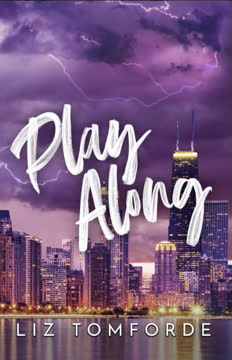Plot Summary
Homecoming Shadows
Juliet, now a famous singer, returns to her small California hometown after years away, summoned by Donna, the woman who once took her in. The homecoming is fraught with anxiety and unresolved pain, especially as she's forced to face Luke, the man she once loved and lost, and the memories of Danny, the boy she was supposed to love. The house is transformed, expanded for a new foster project, but the ghosts of the past linger in every corner. Juliet's fame is a brittle shield against the ache of old wounds, and the reunion with Donna and Luke is tense, loaded with unspoken history and regret. The stage is set for three weeks of reckoning with everything she tried to leave behind.
The Unwanted Summer Guest
Years earlier, Juliet is a high schooler living with the Allens, grateful but always on edge, trying to be the perfect "good girl" for her boyfriend Danny and his family. When Danny returns from college for the summer, he brings Luke, a teammate with a hard past and a harder edge. Luke's presence unsettles Juliet—he's not the safe, smiling boy she expected, but a force of nature who sees through her careful performance. Their first encounters are prickly, charged with mutual suspicion and a dangerous undercurrent of attraction. The summer's delicate balance is already threatened by the arrival of someone who refuses to play by the town's rules.
Surf, Sand, and Secrets
The trio's days revolve around the beach, where Danny and Luke surf while Juliet watches from the shore, feeling both included and apart. Luke's skill in the water is mesmerizing, and Juliet can't help but notice the difference between the boys: Danny is content, safe, and predictable; Luke is restless, hungry, and alive. The town's expectations press in—Juliet is always reminded to be grateful, to stay in her place. But the more time she spends with Luke, the more she feels the stirrings of something she can't name, a longing for more than the safe life she's been given. The ocean becomes a symbol of everything she wants and fears.
The Good Girl's Cage
Juliet's life with the Allens is a constant performance of thankfulness, but she's haunted by her past—abuse, poverty, and the loss of her brother. She works at the diner, endures the town's judgment, and tries to be worthy of the charity she's received. Luke, meanwhile, sees through her act and challenges her to want more. Their clashes are electric, exposing the cracks in Juliet's carefully constructed identity. She's torn between the safety of Danny's love and the dangerous freedom Luke represents. The summer becomes a crucible, testing how much of herself she's willing to sacrifice to belong.
Hunger and Hidden Kindness
Despite their antagonism, Juliet notices Luke's quiet suffering—he's always hungry, never taking enough at meals. She secretly gives up her own food and money to make sure he's fed, a kindness she hides from everyone, even him. Their secret acts of care for each other deepen the bond they both deny. Meanwhile, the Allens' home is a place of both comfort and constraint, and Juliet's gratitude is tinged with resentment. The town's charity is conditional, and Juliet learns that survival sometimes means bending the truth, hiding your needs, and finding small ways to care for those who understand your pain.
Songs in the Dark
Juliet's only true solace is music—she writes songs in secret, pouring her longing and sadness into melodies no one else hears. One night, Luke discovers her playing and is stunned by her talent. He urges her to share her gift, to stop hiding behind the "good girl" mask. Their late-night conversations are raw and honest, exposing vulnerabilities neither can admit in daylight. Music becomes the language of their connection, a way to say what they can't say aloud. But every note is also a reminder of what Juliet risks if she steps out of line—her place in the only home she's ever known.
The Tides of Wanting
The simmering attraction between Juliet and Luke grows harder to ignore. Their arguments are laced with longing, and every accidental touch is electric. Juliet tries to hold onto Danny, to be the girl everyone expects, but her body and heart betray her. Luke, for his part, is both drawn to and furious with Juliet—he wants her, but hates himself for it. The summer's heat intensifies everything, and the boundaries between right and wrong blur. The ocean's pull mirrors the pull between them: irresistible, dangerous, and impossible to escape.
Bruises and Blame
Juliet's past trauma resurfaces when she's attacked biking home from work. The town's response is predictably unsympathetic, blaming her for what happened. Luke is the only one who reacts with rage and protectiveness, hunting down her attacker and risking his own future to defend her. The incident exposes the limits of the Allens' charity and the town's hypocrisy. Juliet is forced to confront the reality that safety is always conditional, and that sometimes the only people who will fight for you are the ones who are just as lost as you are.
The Cost of Gratitude
As the summer wears on, the unspoken debts between Juliet, Luke, and the Allens grow heavier. Juliet continues to give up her own comfort for Luke's sake, while Luke takes risks for her that threaten his future. The town's constant reminders of her "luck" become suffocating, and Juliet begins to question whether gratitude is just another form of control. The lines between kindness and obligation blur, and the cost of belonging starts to feel too high. Juliet's longing for freedom clashes with her fear of losing everything she's been given.
Breaking the Surface
The tension between Juliet and Luke finally erupts—first in a fight, then in a kiss that changes everything. Their connection is undeniable, but the consequences are immediate and devastating. Danny senses the shift and is hurt, confused, and angry. The fragile balance of the summer is shattered, and the truth about what everyone wants can no longer be hidden. Juliet is forced to choose between the safety of the life she's built and the dangerous, exhilarating possibility of something real with Luke. The surface calm of their world is broken, and nothing will ever be the same.
The Unraveling Thread
The aftermath of Juliet and Luke's betrayal is catastrophic. Danny, devastated by the truth, disappears into the night and is found dead the next morning, an apparent accident but shadowed by suspicion. The town, the Allens, and the police all look for someone to blame, and Luke becomes the prime suspect. Grady, Danny's friend, manipulates the narrative to protect his own secrets, blackmailing Juliet into silence and exile. Juliet is forced to leave everything behind—her home, her music, and Luke—to save him from ruin. The threads of her life unravel, and she is left alone, carrying the weight of everyone's pain.
The Cliff's Edge
Juliet flees to Los Angeles, homeless and desperate, reinventing herself as a singer by any means necessary. She buries her past, refusing to let herself feel or hope. Luke, meanwhile, is left behind to pick up the pieces, his career and heart shattered. Years pass, and both are changed by loss and survival. The memory of what they had—and what they lost—haunts them, but neither believes they deserve happiness. The cliff's edge becomes a metaphor for the choices they made and the lives they might have had.
The Weight of Lies
When Juliet returns to Rhodes for Donna's new foster project, the past refuses to stay buried. Old friends, enemies, and lovers are all drawn back together, and the lies that protected them for years begin to unravel. A reporter's investigation into Danny's death threatens to expose everything, and Grady's grip on the narrative weakens. Juliet and Luke are forced to confront the truth about what happened, what they did, and what they still feel for each other. The weight of their secrets is crushing, but the possibility of redemption glimmers on the horizon.
The Price of Survival
As the truth comes out, Juliet and Luke must decide what they're willing to risk for each other. Donna's forgiveness offers a path to healing, but only if they can forgive themselves. The cost of survival—of all the lies, betrayals, and sacrifices—becomes clear. Juliet realizes that she has spent her life trying to be worthy of love, never believing she deserved it. Luke, too, must let go of his anger and accept that he is allowed to want happiness. Together, they face the consequences of their choices and the possibility of a future built on honesty.
The Long Goodbye
The final days in Rhodes are bittersweet. Juliet and Luke work side by side, rebuilding the house and their relationship. The ghosts of Danny and the past linger, but the love between them is undeniable. They must say goodbye to the versions of themselves that were shaped by pain and fear, and choose each other, fully and without reservation. The long goodbye is both an ending and a beginning—a chance to finally claim the life they want, together.
The Return to Rhodes
With the truth finally out and the past laid to rest, Juliet and Luke are free to build a new life. They marry, move to Hawaii, and create a home filled with music, surfing, and the family they never thought they'd have. The scars of the past remain, but they are no longer defined by them. The return to Rhodes is not just a physical journey, but an emotional one—a coming home to themselves and to each other.
Ghosts in the Walls
Donna's death is both a sorrow and a release. Juliet and Luke honor her legacy by continuing her work, opening their home and hearts to others in need. The ghosts of the past are acknowledged, but no longer hold power over them. The house that was once a place of pain becomes a place of healing, and the cycle of love and loss continues, transformed by forgiveness and hope.
Forgiveness and Freedom
In the end, Juliet and Luke choose each other, not because they are perfect or unscarred, but because they are willing to forgive—each other and themselves. Their love is hard-won, forged in suffering and sacrifice, but it is real and enduring. They find freedom not in escape, but in acceptance, and the courage to claim happiness despite everything they've endured. The story closes with the promise of new beginnings, and the knowledge that even the most broken hearts can be made whole.
Characters
Juliet Cantrell
Juliet is the emotional core of the story—a girl shaped by trauma, poverty, and abuse, who is taken in by the Allens and spends years trying to be "good enough" to deserve their love. Her relationship with Danny is safe but stifling, while her connection with Luke is dangerous, passionate, and transformative. Juliet's journey is one of self-discovery and self-forgiveness; she must learn to want more than survival, to claim her own desires, and to believe she is worthy of happiness. Her music is both her refuge and her confession, the place where she can be honest about her pain and longing. Juliet's greatest struggle is with guilt—over her past, over Danny's death, over the ways she's hurt those she loves. Her arc is about breaking free from the cage of gratitude and shame, and choosing love, even when it feels impossible.
Luke Taylor
Luke is the outsider who becomes Juliet's mirror and catalyst. Scarred by a violent, unstable childhood, he is fiercely independent, blunt, and often angry. His hunger—for food, for love, for meaning—is palpable, and he recognizes a kindred spirit in Juliet. Luke's relationship with Danny is complicated by loyalty and rivalry, but his feelings for Juliet are unwavering, even when he tries to deny them. He is both her harshest critic and her greatest champion, pushing her to want more and to stop hiding. Luke's journey is about learning to accept care, to forgive himself for his failures, and to believe that he, too, deserves happiness. His love for Juliet is both his salvation and his undoing, and his willingness to sacrifice for her is both noble and self-destructive.
Danny Allen
Danny is the golden boy—handsome, kind, and deeply invested in doing the right thing. He offers Juliet safety and stability, but their relationship is built on her need to be saved, not on true understanding. Danny's inability to see Juliet's real self, and his insistence on a version of goodness that leaves no room for complexity, ultimately drives them apart. His death is the story's central tragedy, a loss that reverberates through every character. Danny represents the life Juliet could have had—the safe, small, grateful life—but also the cost of denying one's true self. His legacy is both a burden and a blessing, and his memory shapes the choices of those he left behind.
Donna Allen
Donna is the heart of the Allen family—a woman whose kindness and generosity are genuine, but who is also complicit in the systems that keep Juliet and Luke in their place. She wants to save everyone, but sometimes at the cost of their autonomy. Donna's love is both a gift and a chain, and her inability to see the full truth of those she cares for causes pain as well as healing. In the end, her forgiveness and acceptance are what allow Juliet and Luke to move forward. Donna's death is a moment of both grief and release, marking the end of an era and the beginning of a new one.
Grady
Grady is the story's antagonist—a self-righteous, judgmental figure who hides his own secrets while policing the behavior of others. His resentment of Juliet and Luke is rooted in his own shame and self-loathing, and he manipulates the narrative around Danny's death to protect himself. Grady's actions force Juliet into exile and nearly destroy Luke's life. His eventual exposure is a moment of justice, but also a reminder of how easily the powerful can rewrite the truth to suit their needs.
Libby
Libby is a minor but important character—a sweet, sincere girl who befriends Juliet and becomes entangled in the group's drama. Her relationship with Grady is marked by disappointment and betrayal, but she ultimately finds her own path, taking over Donna's legacy and raising her child alone. Libby represents the possibility of healing and new beginnings, even after great loss.
The Pastor
Danny's father is a symbol of the town's moral code—well-meaning but inflexible, generous but controlling. His sermons and expectations shape the lives of everyone in the house, and his inability to see beyond his own worldview contributes to the tragedies that unfold. His death marks a turning point, freeing Donna and Juliet from his influence but also leaving them adrift.
Cash
Cash is Juliet's later boyfriend—a famous, abusive musician who offers her a different kind of escape from her past. Their relationship is marked by violence, addiction, and public scrutiny, and serves as a dark mirror to her connection with Luke. Cash represents the dangers of seeking validation in the wrong places, and the ways fame can amplify, rather than heal, old wounds.
Harrison, Caleb, Beck
These secondary characters are part of the group's social circle—surfers, college friends, and bystanders to the central drama. They provide moments of levity, support, and perspective, and their loyalty to Luke and Juliet is a reminder that not everyone in the town is complicit in its cruelty.
The Town
The town itself is a character—a place of small-mindedness, gossip, and conditional charity. Its expectations shape the choices of every character, and its refusal to forgive or forget is a constant threat. The town's eventual irrelevance is a victory for Juliet and Luke, a sign that they have finally escaped its grip.
Plot Devices
Dual Timeline Structure
The novel alternates between "then" and "now," slowly unraveling the events of the fateful summer and their aftermath. This structure creates suspense, as the reader pieces together what happened to Danny, why Juliet and Luke are estranged, and how they might find their way back to each other. The dual timeline structure also allows for deep character development, showing how trauma and love shape the choices people make over time.
Unreliable Narration and Withheld Information
Juliet's perspective is shaped by shame, guilt, and self-protection. She withholds key information—from the reader, from other characters, and from herself—creating a sense of mystery and emotional tension. The slow revelation of the truth about Danny's death, Grady's blackmail, and Juliet's sacrifices for Luke keeps the reader invested and heightens the emotional stakes.
Symbolism of Surfing and Music
Surfing represents risk, desire, and the possibility of transcendence, while music is Juliet's means of self-expression and healing. Both are forms of escape and connection, and both are threatened by the constraints of the town and the expectations of others. The recurring imagery of the ocean, the cliff, and the song "Homecoming" underscores the themes of belonging, loss, and the search for home.
Foreshadowing and Irony
Early references to danger, longing, and the impossibility of escape foreshadow the novel's central tragedies. The irony of Juliet's gratitude—how it becomes a prison rather than a blessing—is woven throughout, as is the bitter truth that sometimes the people who save us also hold us back. The eventual reversal—Juliet and Luke finding freedom and forgiveness—gives the story its emotional payoff.
Thematic Motifs
The novel repeatedly explores the tension between gratitude and desire, safety and freedom, survival and happiness. The characters' struggles with guilt, self-worth, and the fear of wanting more are central to the plot and to their development. The motif of the "cage" recurs, as does the question of whether it's possible to be both good and happy.
Analysis
Elizabeth O'Roark's The Summer We Fell is a searing exploration of trauma, desire, and the long, painful road to self-forgiveness. Through its dual timeline and emotionally raw narration, the novel interrogates the ways in which gratitude can become a form of bondage, and how the quest for safety can suffocate the very self it seeks to protect. Juliet's journey—from abused, grateful survivor to a woman who claims her right to want, to love, and to be loved—is both deeply personal and universally resonant. The story's power lies in its refusal to offer easy answers: every act of kindness is tinged with self-interest, every act of rebellion with guilt. The love story between Juliet and Luke is both a balm and a wound, a reminder that true connection requires vulnerability, risk, and the willingness to break free from the roles others assign us. In the end, the novel's message is one of hard-won hope: that even the most broken people can find healing, not by erasing the past, but by embracing it, forgiving themselves, and daring to choose happiness. For modern readers, the book is a testament to the resilience of the human spirit, the necessity of self-compassion, and the transformative power of love that is honest, flawed, and fiercely chosen.
Last updated:
Review Summary
The Summer We Fell received mixed reviews, with many praising its emotional depth and angsty romance. Readers appreciated the dual timeline structure and the forbidden love story between Juliet and Luke. Some found the characters compelling, particularly Luke's protective nature. However, others criticized the lack of character development and interaction between the main couple. The book's heavy themes, including religious trauma and abuse, resonated with some readers while others found them overwhelming. Overall, it was a polarizing read that evoked strong emotions from its audience.



















